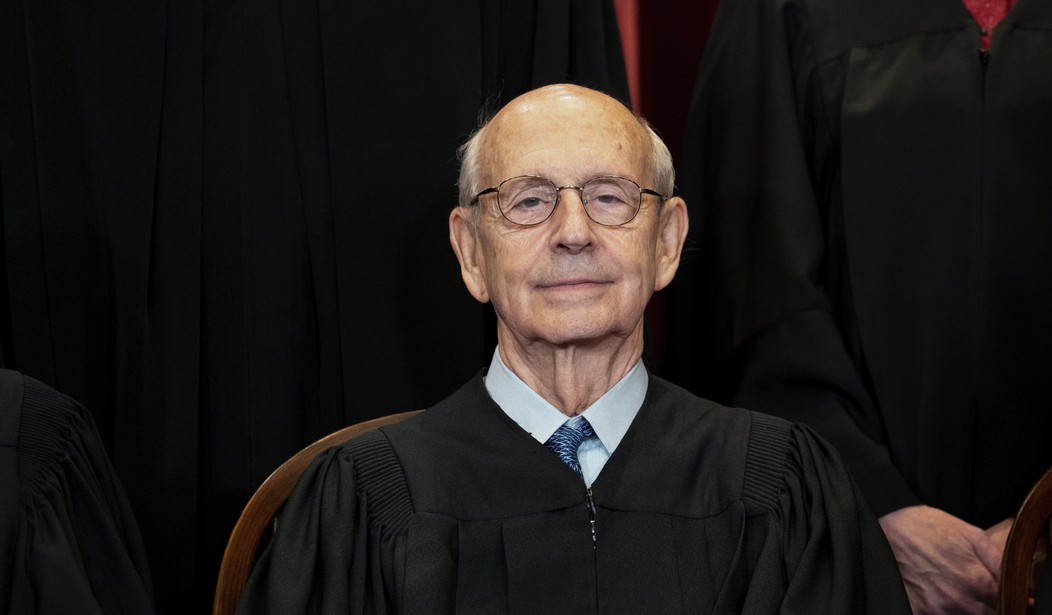Okay, okay, Justice Stephen Breyer didn’t put it that colloquially. However, NPR relates his argument against court-packing from Breyer’s new book, in which the Supreme Court justice does write, “What goes around comes around.” And ironically, he uses the poster child for judiciary-related karma to make his point — Harry Reid:
U.S. Supreme Court Justice Stephen Breyer has a warning to those who want to remake the court: Be careful what you wish for.
In his new book, The Authority of the Court and the Peril of Politics, Breyer argues that over time, public acceptance of Supreme Court opinions, even those you may disagree with, has become a habit — a hard-won habit that has fortified the rule of law as an essential part of U.S. democracy.
And he points to what former Senate Democratic leader Harry Reid said about Bush v. Gore when the Supreme Court effectively ruled that George W. Bush had won the presidential election.
“He said the most remarkable thing about this case is, even though probably half the country didn’t like it at all, and it was totally wrong, in his opinion and in mine, people followed it, and they didn’t throw brickbats at each other and they didn’t have riots,” he told NPR legal affairs correspondent Nina Totenberg.
Not too long after that, however, Harry Reid did his part to throw brickbats at Bush and sand in the gears of judicial confirmations. Reid and Chuck Schumer began blockading Bush’s appointments in 2002, which led to the standoff in 2005 that ended with the Gang of 15. Reid then blew up the filibuster for presidential nominations in 2013 when Mitch McConnell played the exact same game on Barack Obama’s nominees, which then led to McConnell’s expansion of the filibuster exception in 2017 to include the only exception to Reid’s exception — Supreme Court nominees.
Given that history, one would think that Democrats would have already learned this lesson by now:
But Reid’s observation in 2000 did not match the reality of the 2020 election: Then-President Donald Trump thumbed his nose at the court and Congress, leading to the storming of the U.S. Capitol on Jan. 6. That has led many liberals to call for a radical change in American institutions, including the Supreme Court.
Breyer’s view: “What goes around comes around. And if the Democrats can do it, the Republicans can do it.”
Have they learned that lesson? Not yet they haven’t, and it seems doubtful that Breyer’s instruction will have much impact either. If this Supreme Court strikes down Roe and Casey in the Mississippi abortion case next term, the shrieking for court-packing will peak — and the weak-willed Joe Biden will likely surrender to it, as he has repeatedly on other issues such as the eviction moratoria and vaccine mandates.
If it happens — and the timing of it may prevent it even if cooler heads don’t prevail — it will touch off a SCOTUS seat race that will rapidly transform it into an ersatz House of Lords. It will become a third chamber of the legislature rather than a final arbiter of the law in the judiciary, and it will lose almost all of its moral and political authority in the transformation. About the only thing that can prevent it is a Republican majority after the midterm elections and maybe Joe Manchin before then. Those are slender reeds on which to rest the hopes of avoiding a never-ending karma cycle that Reid himself started.







Join the conversation as a VIP Member